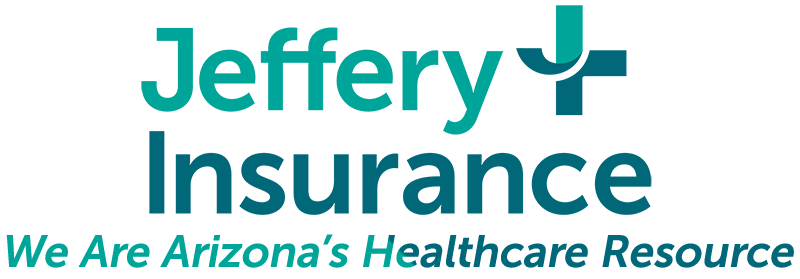You may have heard of short-term health insurance, but what really is it, and how could it benefit you? We’re here to provide deeper insight into short-term plans so you can decide whether it might be a suitable option for you.
What is Short-Term Health Insurance?
Short-term health insurance is a type of health plan that provides flexible, fast coverage for those in dynamic times of change in life. Plans can last as little as one month to as long as 12 months in some states. To get the most out of your short-term health insurance plan, you need to understand how they work, what they cover, and the advantages and drawbacks they can have.
What Does it Cover?
Coverage varies depending on the plan and insurance company you buy from. But most plans typically provide some level of preventative care, doctor visits, urgent care, and emergency care. Some plans may also cover prescriptions as well.
It’s also important to be aware of what short-term plans don’t cover. These types of plans are not required to comply with the Affordable Care Act (ACA) guidelines. This means a couple things. While ACA health plans are guaranteed issue, meaning you can’t be denied coverage based on a preexisting condition, short-term plans are not guaranteed issue. You must answer a series of medical questions to apply for coverage. So if you have a preexisting condition, be aware. ACA health plans are also required to cover 10 essential health benefits, including maternity and newborn care, mental health, and substance abuse disorder services. Short-term insurance plans do not have coverage requirements, so plans can vary in what they cover. Be sure to check your plan details carefully when you’re signing up.
When Does it Make Sense to Get Short-Term Coverage?
Not sure if you need short-term coverage? Here are a few situations where it makes sense to sign up for short-term health insurance:
- You’re in an Employer Waiting Period – for some jobs, there’s a waiting period before new employees become eligible for employer-sponsored health insurance benefits. The wait could be a few short weeks or as long as 90 days. Short-term plans can keep you covered during this period of time, so you’re not in an odd place of having no coverage. And the best part: there’s no waiting period to begin. Coverage typically starts within 24 hours after you pay your initial monthly premium.
- You’re Turning 26 and Coming Off Your Parent’s Insurance –while turning 26 qualifies you for a special enrollment period, you could still be left without coverage for a period of time. If you enroll in health insurance the first 14 days of the month, coverage starts the next month. But if you sign up on the last 15 days of the month, you’re not covered until the following month. For example, if you sign up for coverage on July 18, you won’t have coverage until September 1. Sign up for a short-term health plan to stay protected in the meantime.
- You Retire Early and Don’t Qualify for Medicare Yet – if there’s a little time between your early retirement and Medicare eligibility, consider buying a short-term health plan to hold you over. After all, why should you risk your retirement savings on paying for healthcare expenses (potentially major ones) 100 percent out-of-pocket?
- You Missed Open Enrollment – life happens, and sometimes that means accidentally missing the Open Enrollment Period. If you haven’t undergone a qualifying life event that makes you eligible for a Special Enrollment Period (moving, getting married or divorced, adding a child to your family, turning 26, etc.) you won’t be insured for a whole year. Luckily, a short-term plan will get you through the year or until a change in circumstance allows you to secure major medical health insurance. While you may be missing some benefits, this coverage can offer some peace of mind.
The Advantages and Drawbacks to Be Aware of
When considering signing up for a short-term health plan, you should also weigh the advantages and drawbacks. Here are a few of each to be aware of:
Advantages
- Coverage flexibility – there are many different plan options when it comes to short-term health insurance, so you can choose one to fit your immediate (or near future) needs. You can also pick the length of your coverage and drop it with no penalty if a more permanent health insurance option comes along.
- Quick enrollment – there’s no need to wait for an enrollment period with short-term coverage. You can sign up at any time, and it can go into effect the day after an application and payment is received.
- Network options – short-term plans may have provider networks that are more flexible than some other health insurance options. This means that you may be able to see the healthcare provider of your choice, even if the provider is outside your plan’s network.
Drawbacks
- Eligibility restrictions – as mentioned previously, there are eligibility restrictions when it comes to short-term health plans. Preexisting conditions may be excluded from coverage. Applicants who have medical conditions may be denied coverage, and plans may charge higher premiums based on applicant’s age, gender, health status, and other factors.
- Coverage limitations – essential health benefits like maternity care and mental health care may not be covered. Short-term plans are also not renewable. You may be able to apply for a new plan when the original contract period ends. However, there is no guarantee of continued coverage.
- No standardized regulations – again, short-term health plans are not mandated or standard, and there’s little government oversight, so plans can vary widely.
Ready to Sign Up for a Short-Term Health Insurance Plan?
There’s a lot to consider when it comes to a short-term health plan. But if you’re ready to sign up, the Jeffery Insurance team is ready to help. We will answer any questions and help you find the right plan for your unique needs through United Healthcare. No matter what, we will be with you every step of the way. We are based in Scottsdale but are happy to assist you no matter where you are in Arizona. Jeffery Insurance is Arizona’s health care resource!







